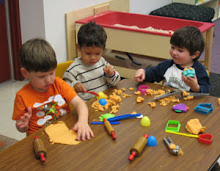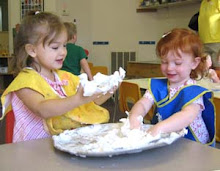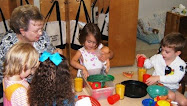Berk. L (2003). Chapter 6: Cognitive Development perspectives (pp.216-267). Child Development (6th Edition). Allyn & Bacon: Boston.
Cunningham. P (2006). Early years teachers and the influence of Piaget:evidence form oral history. Early Years. 26(1), pg 8-14
Dimitriadis. G (2006). Theory for education. Hoboken: Routledge
Edwards(1), S. (2005). Children's learning and developmental potential: examining the theoretical informants of early childhood curricula for the educator's perspective. Early Years. 25 (1), 67-80.
Edwards(2), S. (2007). From developmental-constructivism to socio-cultural theory and practice: an expansive analysis of teachers' professional learning in early childhood education. Journal of Early Childhood Education Research. 5 (1), 83-106.
McInerney, D. & McInerney, V. (2002). Educational Psychology: Constructing Learning. NSW, Australia; Pearson Educational Australia Pty Lim.
Moseley. D, Baumfield.V, Elliot. J, Gregson. M, Higgins. S, Miller. J, Newton D (2005). Frameworks for thinking: a handbook for teaching and learning. Cambridge; Cambridge University Press
Puckett, M. & Black, J. (2001). The Young Child: Development from prebirth through age eight. New Jersey; Prentice Hall Inc.
Snowman, J. & Dobozy, E. & Scevak, J. & Bryer, F. & Barlett, B. & Biehler (2009). Psychology: Applied to teaching. Qld, Australia; John Wiley & Sons Ltd.
Tzuno. P. W (2007). The tension between teacher control adn children's freedom in a child-centred classroom: resolving the practical dilemma through a closer look at te related theories. Early childhood Journal. 35(1). 33 - 39.
skip to main |
skip to sidebar

(image 5)

(image 6)

(image 7)

(image 8)

(image 9)
constructing knowledge through freedom of experimentation

(image 5)
Constructing knowledge through child initiated play

(image 6)
Constructing knowledge though actively learning and peer interaction

(image 7)
Constructing knowledge through play

(image 8)
constructing knowledge through activities

(image 9)
Followers
Blog Archive
-
▼
2009
(17)
-
▼
April
(17)
- Hi my name is Cannaly and I am an Early childhood ...
- Firstly I would like to explain what I mean by cog...
- Hi Cannaly my name is Julie and I am a first year ...
- Hi Julie, thanks for taking an interest in my blog...
- Hi, its julie the uni student again, Thanks so muc...
- Not a problem Julie!! I will explain each stage fo...
- Stage 1 - Sensorimotor
- Hi Cannaly my name is Fiona and I am a childcare w...
- Stage 2 - Preoperational
- My name is Samantha and I am a year 1 teacher. I u...
- Stage 3 - Concrete Operational
- Hi, Im John and I am a year 4 teacher, so therefor...
- Stage 4 - Formal Operational
- Now that I have told you about the stages of devel...
- I would like to finish my Blog page with an excerp...
- References
- Images used in this blog
-
▼
April
(17)
